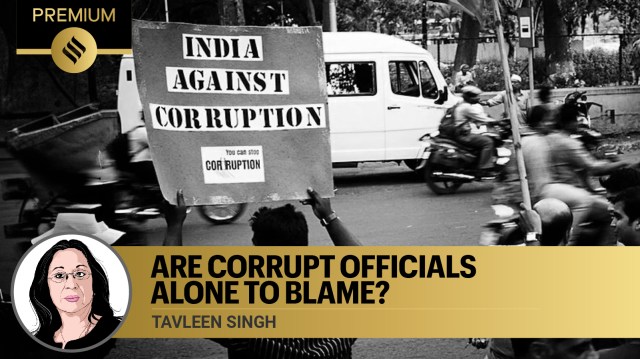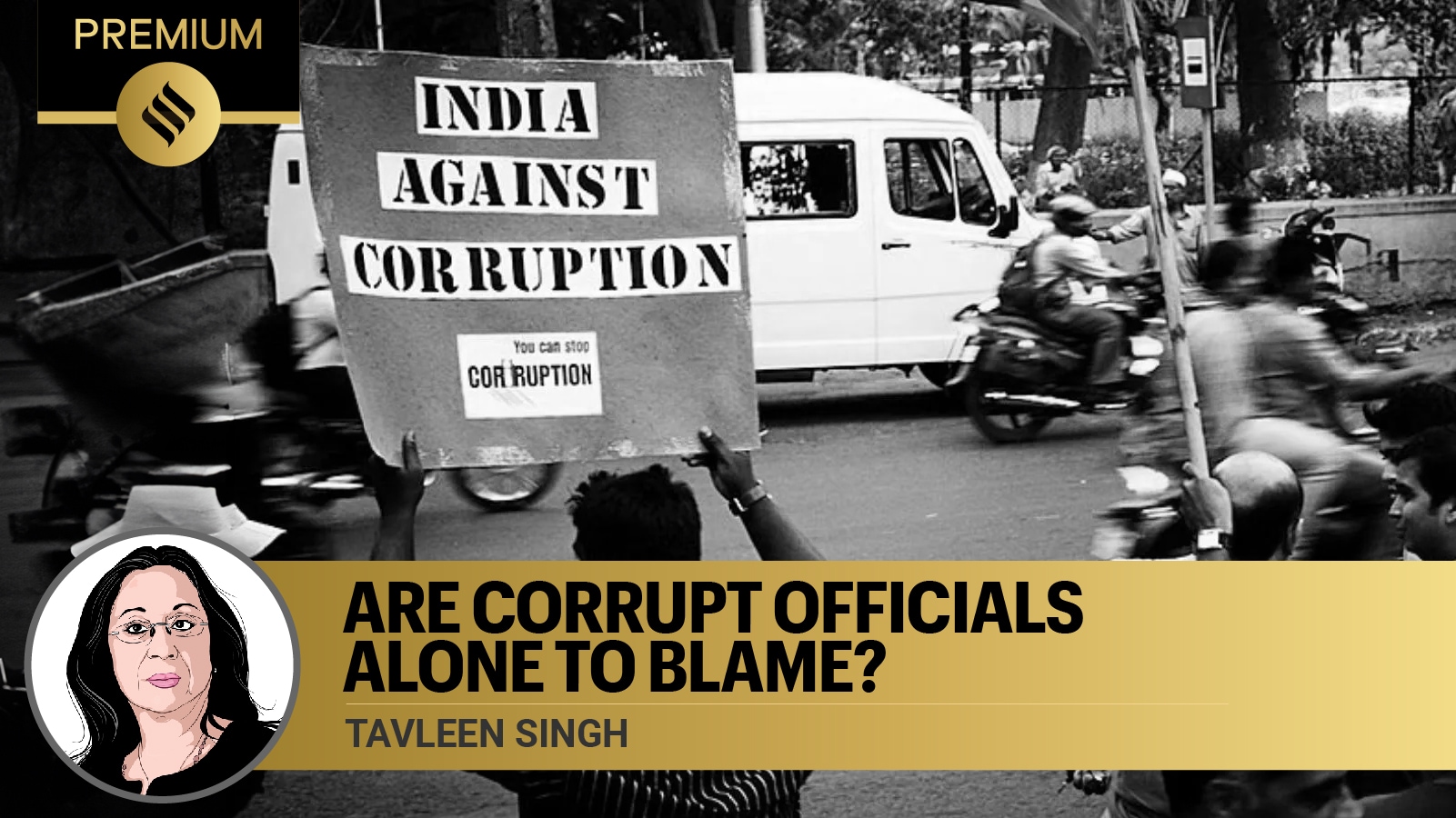
This week I want to talk about ethics and corruption in public life. Not just because yet another chief minister has been found indulging in dodgy practices, but because I believe that the reason why so many politicians and high officials get away with their hanky-panky is because you and I are selective about the yardstick used to judge officials, elected and unelected, in high office. We excuse some and hold others to account. Not a good recipe for introducing a culture guided by high standards.
You do not need to be a political scientist to know that politics in India is the quickest way to become rich. You do not need to count the number of houses they miraculously come to own, or the fancy cars and fancy foreign holidays. You just need to look closely at the politicians of ‘humble’ background who pop up on the national political stage. Observe carefully and you will notice that expensive watches inexplicably appear on wrists, Italian loafers and expensive sneakers on feet and gold Cartier glasses shield their humble eyes. This is without calculating the cost of the beautiful Kashmiri shawls that rest on humble shoulders and the finely cut jackets that cover khadi kurtas in winter sessions of Parliament. We ask no questions because we know that the real reason why nearly all our political parties have become family firms is because heirs are always needed to take care of the loot and hopefully make some more.
When caught in an unethical practice or in an act of obvious nepotism the response is always, as we see now in Karnataka, that this is the result of a ‘political vendetta’. And to be fair, since Narendra Modi became prime minister, the agencies charged with stopping corrupt practices have been pursuing his political opponents zealously. This hounding stops when, either out of fear of ending up in a jail cell or bankrupting the family business, they join the BJP. Privately, they admit that they had no choice. But never publicly. When Modi came to power, he promised that he would punish corrupt officials. And he has, but in such choosy fashion that his credibility is low.
Allow me then to explain why we, the people, are to blame for the rot in our public life. It has now trickled down to the lowest, rural levels of village governance. There are two forms of corruption. One financial and the other moral or ethical, and it is this second kind that we accept as normal. Two weeks ago, I mentioned a Chief Election Commissioner who joined the Congress Party after retirement and the response I got astounded me. Members of Parliament, Supreme Court lawyers, political analysts, party spokesmen came out in support of the late bureaucrat’s daughter, who complained in a letter to this newspaper that I had wrongly said that he became a politician immediately after retirement. It was three years later, she said, and after mulling over his decision long and hard.
She has a right to defend her father. But what of those who see nothing unethical about a man whose job was to ensure free and fair elections becoming a politician. True, he took a leave of absence before reappearing as a member of the Congress Party. How low have our ethical standards dropped that this should be considered perfectly normal even to our parliamentarians? One of them said on social media that he remembered fondly the endless cups of tea he had shared with the former Chief Election Commissioner, another said that I wrote out of ‘vendetta’.
Many, many other supporters of the Congress Party asked if I thought it wrong for former Chief Justices of the Supreme Court to join a political party. I do think it is wrong. Very wrong. I also think it is wrong for Army chiefs to end up in a political party and anybody else who has been in a high office that is based on the people’s trust. But judging from the vilification I have been subjected to, I appear to be in a minuscule minority when it comes to ethics in public life.
This has never prevented me from speaking up for higher standards. And hope that there will be some of you who read this piece and think about the importance of demanding higher ethical and moral standards from those who occupy high office. Some years ago, I had a conversation with V S Naipaul about the filth in our city streets and the appalling state of our ancient monuments, and he said that it was because ordinary Indians did not think these things were important that they did not happen. When people start to demand higher standards, he said, then you will get higher standards.
In my view, it is not totally the fault of our political leaders and high officials that they lack a sense of ethics and integrity, but our fault for accepting their bad behaviour so casually. On a facetious note, I would like to end by expressing the fervent hope that our public servants discover how to make money out of providing us with the best public services and infrastructure, instead of making fortunes by giving us second-rate infrastructure and abysmal public services. When it comes to moral corruption, it is entirely up to you and me to demand probity from those who hold high office.



